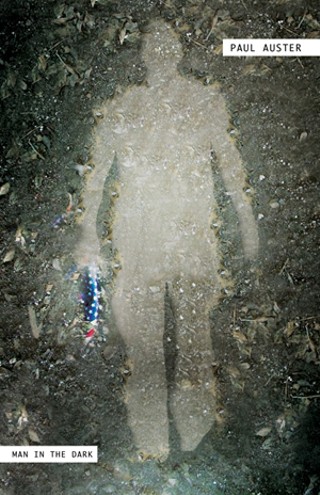Book Review: New in Fiction
Paul Auster's 14th book provides a small window into the terrors of aging and the intricate, personal search for meaning
Reviewed by Yvonne Georgina Puig, Fri., Sept. 19, 2008

Man in the Dark
by Paul AusterHenry Holt and Co., 192 pp., $23
Man in the Dark, the 14th and latest novel from Paul Auster, is an unassuming meditation on longing, a small window into the terrors of aging and the intricate, personal search for meaning. As is often the case with Auster, plot comes secondary to theme, and here he enters the mind of a 72-year-old writer, living out his days at his daughter's house in Vermont, in order to explore ideas of war and self.
August Brill is a recently widowed former book critic, confined to a wheelchair after a debilitating car accident. At night, he lies in bed, unable to sleep and haunted by the past. He is supposed to be at work on a memoir of his life but has found himself marooned by indifference: "Maybe it started when Sonia died, I don't know, the end of married life, the loneliness of it all, the fucking loneliness after I lost her." The only things that comfort him are watching and discussing films with his granddaughter Katya – Grand Illusion, The Bicycle Thief, The World of Apu – and telling himself stories in the darkness before sleep.
Brill descends into a lengthy story in which he imagines an alternate America at war with itself. His characters seek the architect of this war, a writer in Vermont named August Brill, in hopes of killing him and ending the violence. The real war, of course, is waging within Brill, and Auster shows us a man envisioning his own suicide. "The story is about a man who must kill the person who created him, and why pretend I am not the person?" Brill asks. (Readers of Auster will recall Glass, in City of Glass, assuming the identity of a detective named Paul Auster.)
Man in the Dark turns out to be a poignant diary of Brill's suffering; the reader gets the feeling of paging through something found meant for unspecific eyes. Brill describes his mood as "dark, my little ones, as dark as the obsidian night." Dark as that mood may be, he is strengthened by his nighttime conversations with Katya, herself suffering from the horrific murder of her boyfriend in Iraq. In this way, Brill is not alone in his struggle to make sense of loss. In the end, he is not alone in the dark.










